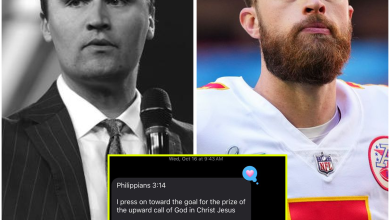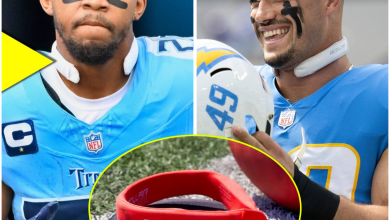The Jordan Rules 2.0: Why a Former NBA Veteran Says the WNBA is Failing Its Michael Jordan
In the world of professional sports, there are transcendent stars who don’t just play the game; they change it. They become so essential, so gravitational, that their health and success become synonymous with the health and success of their entire league. The NBA had Michael Jordan. The WNBA now has Caitlin Clark. And according to former 15-year NBA veteran Olden Polynice, the WNBA is committing a cardinal sin: it’s failing to protect its “golden egg.” In a blistering critique, Polynice drew a powerful and historically resonant comparison, arguing that the physical targeting Clark is enduring is a modern-day version of the infamous “Jordan Rules,” and the league’s failure to intervene is a catastrophic mistake.
“You don’t even take care of your own,” Polynice stated bluntly on a recent podcast. “You had the golden egg, and you still do, but yet you clown. Caitlin Clark is your golden egg.” His argument cuts to the heart of a debate that has been raging since Clark’s professional debut: Is the WNBA allowing its biggest star to be physically battered out of jealousy and shortsightedness, risking the very phenomenon that has brought the league unprecedented relevance?
To understand the weight of Polynice’s claim, one has to understand the original “Jordan Rules.” In the late 1980s, the “Bad Boy” Detroit Pistons, led by players like Bill Laimbeer and Rick Mahorn, pioneered a simple, brutal strategy to stop the then-unstoppable Michael Jordan: if he drives to the basket, make him pay. Physically. They would clobber him, hack him, and hold him, a deliberate campaign of punishment designed to neutralize a player whose talent was simply on another level.

It was a dark chapter in the league’s history, but it led to a crucial turning point. The NBA, under Commissioner David Stern, recognized that its “cash cow” was being targeted. They understood that protecting their biggest star wasn’t favoritism; it was a fundamental business decision necessary for the growth of the entire league. They cracked down on the overly physical play, and in the space they created, Michael Jordan flourished, becoming a global icon and lifting the NBA to unimaginable heights.
Polynice, along with a growing chorus of other former players and analysts, sees a chilling parallel in the WNBA today. Since her rookie season, Caitlin Clark has been subjected to a level of physical play that often crosses the line from tough to targeted. She has been hit with hard fouls, cheap shots, and flagrant elbows that have left fans and critics alike questioning the league’s officiating and the motives of her opponents. The argument is that this isn’t just a “welcome to the pros” moment; it’s a concerted effort by jealous rivals to punish Clark for the very popularity that is enriching them all.

Where the analogy takes a darker turn is in the reaction of the league and its players. While the NBA eventually stepped in to protect Jordan, the WNBA has remained largely passive, allowing the narrative of a “physical league” to serve as a cover for what many see as targeted aggression. According to the critique, the other players in the league are complicit. Blinded by what is perceived as anger and jealousy over Clark’s immense popularity, they fail to grasp a simple economic reality: their paychecks are directly tied to her success. They benefit from the sold-out arenas, the record-breaking TV ratings, and the new sponsorship deals that Clark’s presence single-handedly generates, yet they silently watch as she is treated like a tackling dummy.
The data proving Clark’s importance is undeniable and staggering. When she is out with an injury—injuries that many argue are a direct result of the physical toll she endures—the league’s viewership doesn’t just dip; it collapses. Ratings have been shown to plummet by over 50% across the board, not just for the Indiana Fever, but for the entire league. Attendance suffers, with thousands of ticket-holders choosing not to show up if they know Clark isn’t playing.
This is where the WNBA’s failure to learn from the NBA’s history becomes so critical. The NBA chose to protect its golden egg and was rewarded with a golden era. The WNBA, by failing to protect Clark, is actively sabotaging its own best chance at long-term, sustainable success. Polynice’s warning is a lesson in history. A league is only as strong as its ability to showcase its greatest talents. By allowing the “Caitlin Clark Rules” to fester, the WNBA isn’t just hurting its biggest star; it’s hurting itself, risking a future of financial growth and mainstream relevance for the sake of petty, on-court politics.



